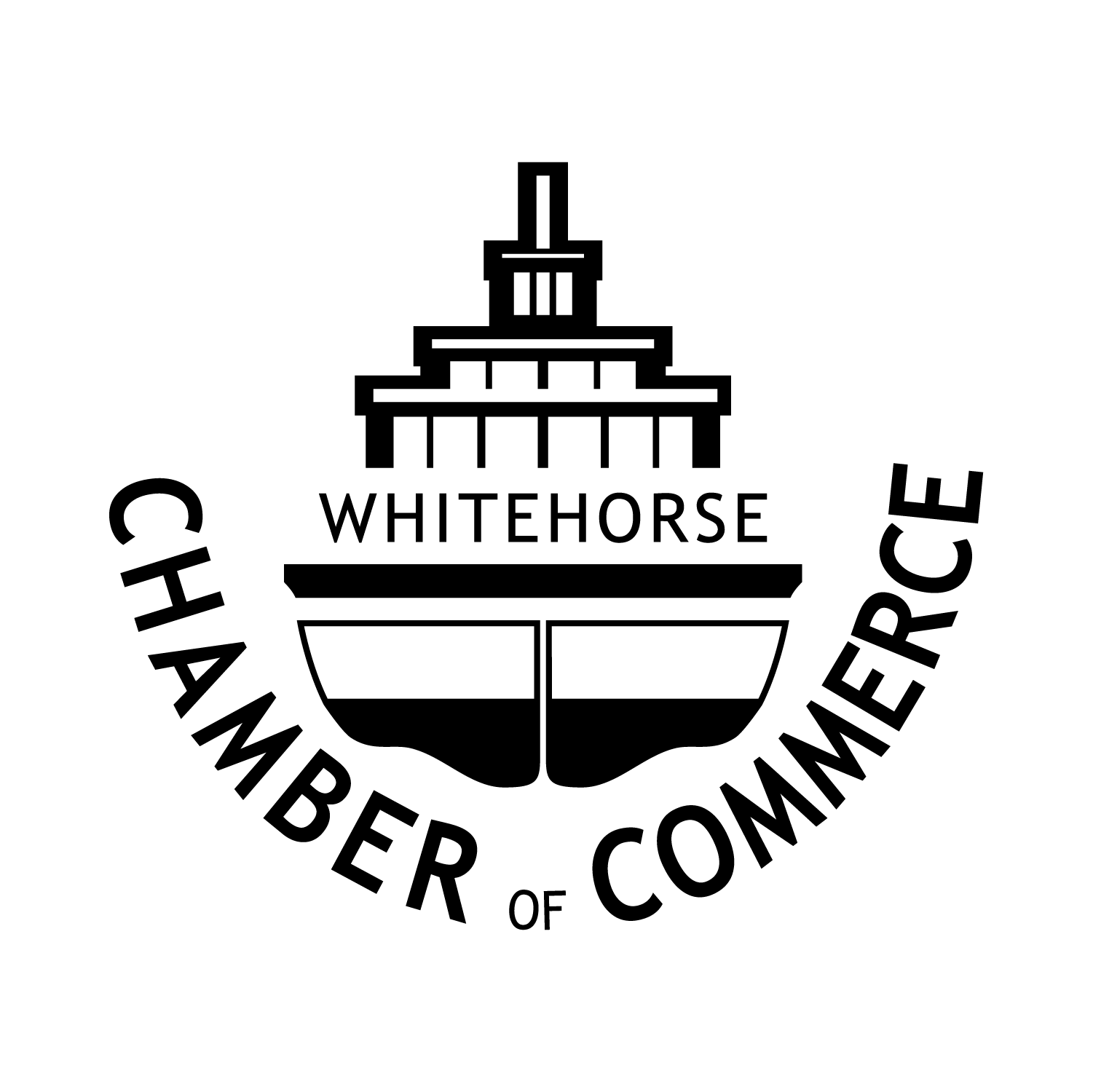|
2025 Annual General Meeting - Executive Director's Message
June 18, 2025
It is a privilege to present this report on behalf of the Whitehorse Chamber of Commerce for the 2024–2025 year. This past year was about delivering tangible value. Over the past year, the Chamber focused on measurable outcomes through targeted services, trusted advocacy, and collaborative leadership. These efforts directly supported our mission to champion and empower member businesses and organizations, enhancing the economic and social fabric of Whitehorse.
Advocacy
We continued to be a strong and trusted voice on issues that matter most to our members— economic resilience and development, procurement reforms, workforce development, housing, public safety, crime prevention, and reduction of regulatory barriers and administrative red tape that hinder business operations. These priorities were shaped by direct member input through surveys, meetings, and sector roundtables.
Key advocacy successes this year included:
- Procurement Reform: We co-led the Joint Procurement Committee with the Yukon Chamber of Commerce and secured three shared policy priorities for 2025 to better support local businesses. Our efforts emphasized fair, transparent processes and clear definitions that prioritize Yukon suppliers.
- Crime Prevention and Safety: We launched the SafeBiz Whitehorse Community Safety Pilot Program with $100,000 in Yukon Government (YG) funding and secured a key stakeholder role in the City and YG jointly developed Community Safety and Well-Being Plan. We continue to collaborate with the RCMP, judicial representatives, and YG officials to strengthen community safety, especially for downtown businesses. These efforts include advocating for coordinated solutions and adding our voice to calls for bail reform to address the repeat-offender cycle impacting business confidence.
- Immigration and Workforce Development: We helped shape the relaunch of the Yukon Nominee Program for 2025 based on direct member feedback, and we are monitoring its implementation and advocating for updates to ensure it remains practical, responsive, and aligned with employer needs. We continue to promote complementary pathways, including the Economic Mobility Pathways Pilot, and are working to reinvigorate the Yukon Partnership Immigration Committee.
- Economic Resilience: We launched the Economic Resilience and Development Committee (ERDC) to strengthen Yukon’s economic foundation and respond to emerging challenges. Grounded in our broader advocacy framework, the ERDC advances recommendations tied to four pillars: strategic action, effective communication, support for Yukon industries, and critical investment.
- Municipal Advocacy: The Chamber continues to maintain an active and ongoing dialogue with the City of Whitehorse on several key municipal priorities, including downtown safety and crime prevention, downtown vitality, alignment of strategic priorities with business needs, zoning amendments that support economic development, and community safety planning. In partnership with the Yukon Contractors Association, we also advocated for streamlining development processes and reducing red tape to improve the permitting environment and support timely project delivery. These efforts are grounded in regular engagement and formal submissions, with the shared goal of improving transparency and communication between the City and the business community.
- National Representation: Through our Canadian Chamber of Commerce membership, we elevated Yukon perspectives in national dialogues on interprovincial trade, labour mobility, immigration, workforce development, and economic resilience. We also engage directly with Yukon’s MP Brendan Hanley, to convey member priorities and advocate for federal policies that support economic growth, workforce development, and long-term competitiveness for Northern businesses.
Partnerships and Collaboration
Collaboration has been central to our impact this year. The Chamber worked across the business support ecosystem to align programming, reduce duplication, and expand opportunities for Yukon businesses. In partnership with organizations such as Yukonstruct, Yukon University I&E, Yukon Venture Angels, and Tech Yukon, we co-delivered Innovation Day and Small Business Week events, partnered on a new mentorship program, and collaborated on ecosystem activities that support entrepreneurship.
On the advocacy front, we partnered with key industry organizations—including the Yukon Chamber of Mines, Tourism Industry Association of Yukon, Yukon First Nations Chamber of Commerce, Yukon Contractors Association and Yukon Chamber of Commerce—to amplify a unified business voice and advance shared priorities with all levels of government. We remain committed to building strategic partnerships that enhance our impact, create efficiencies, and deliver lasting value to the business community.
Committee Updates
Joint Procurement Committee
The Whitehorse Chamber of Commerce, in collaboration with the Yukon Chamber of Commerce, continued to co-lead the Joint Procurement Committee, which exists to advocate for meaningful, measurable improvements to public procurement policies and practices that support Yukon businesses, as outlined in the committee’s Terms of Reference. Our efforts this year focused on improving access, ensuring fairness, and strengthening the role of local and Indigenous-owned businesses in the Yukon procurement landscape.
READ FULL COMMITTEE REPORT
Economic Resilience and Development Committee
To strengthen our territory’s economic foundation amid rapid changes, the Chamber, alongside partners and stakeholders, established the Economic Resilience and Development Committee (ERDC). The committee was initially formed in response to the economic uncertainty and supply chain disruption resulting from the Eagle Gold Mine receivership in 2024. It has since evolved into a platform for proactive planning and policy collaboration on a broad range of economic development and resilience issues. This committee brings together Chamber members, industry experts, and government liaisons to develop forward-looking strategies for economic stability and growth.
READ FULL COMMITTEE REPORT
Housing Committee
The Housing Committee was temporarily paused in 2024 to reassess focus and strengthen strategic alignment with industry partners. During this time, the Whitehorse Chamber of Commerce developed a collaborative working relationship with the Yukon Contractors Association (YCA) to amplify industry-led advocacy and address ongoing housing and development challenges impacting the business community. The YCA collaborated with more than 20 Whitehorse homebuilders to strike a Homebuilders Caucus with an appointed seat on the YCA Board, the Homebuilders Caucus provides leadership and functions as an advisory committee to the YCA on homebuilding issues.
READ FULL COMMITTEE REPORT
Safety Committee
Community safety and crime prevention remain top priorities for the Whitehorse Chamber of Commerce as businesses continue to face challenges related to theft, property damage, and repeat offenders. In 2024–2025, our advocacy focused on elevating business concerns, strengthening cross-sector partnerships, and securing tangible outcomes for impacted members.
READ FULL COMMITTEE REPORT
Buy Local Committee
The Buy Local Committee continues to guide the Chamber’s efforts to embed local support into everything we do— whether through retail programming, community events, procurement advocacy, or digital engagement. This committee plays a key role in reinforcing the message that supporting Yukon businesses is essential to economic resilience. The Buy Local Program is an initiative that supports Small and Medium sized Enterprises (SMEs) and helps stimulate economic activity in Whitehorse through marketing and promotional campaigns. These campaigns highlight the economic and social benefits of supporting local businesses—contributing to a stronger, more connected community.
READ FULL COMMITTEE REPORT
This year, we delivered strong results across advocacy, programming, and member services. Every win was made possible by you—our members—and the many partners who collaborate with us.
To our exceptional team, thank you for your unwavering professionalism, adaptability, and the care you bring to every fast-moving and complex file. To our Board of Directors, your strategic leadership, thoughtful oversight, and steady guidance have been invaluable. And to our volunteers, community partners, and event sponsors, your continued support and collaboration amplify our impact and make everything we do possible.
As we look ahead, our commitment remains strong to fostering business resilience, enhancing service delivery, and ensuring that the voice of Whitehorse’s business community continues to shape a vibrant and inclusive economic future for Yukon.
Sincerely,
Andrei Samson
Executive Director
Whitehorse Chamber of Commerce
|


